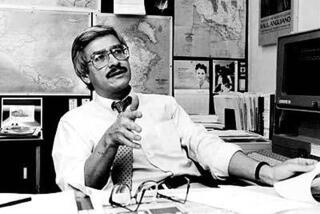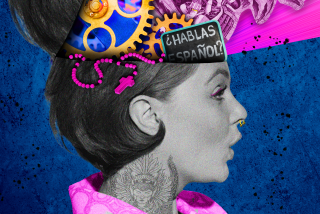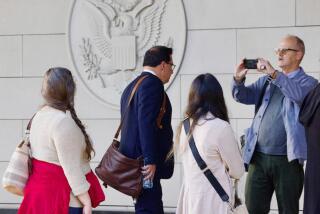Roberto Rodriguez, prolific writer on Chicano life, dies at 69
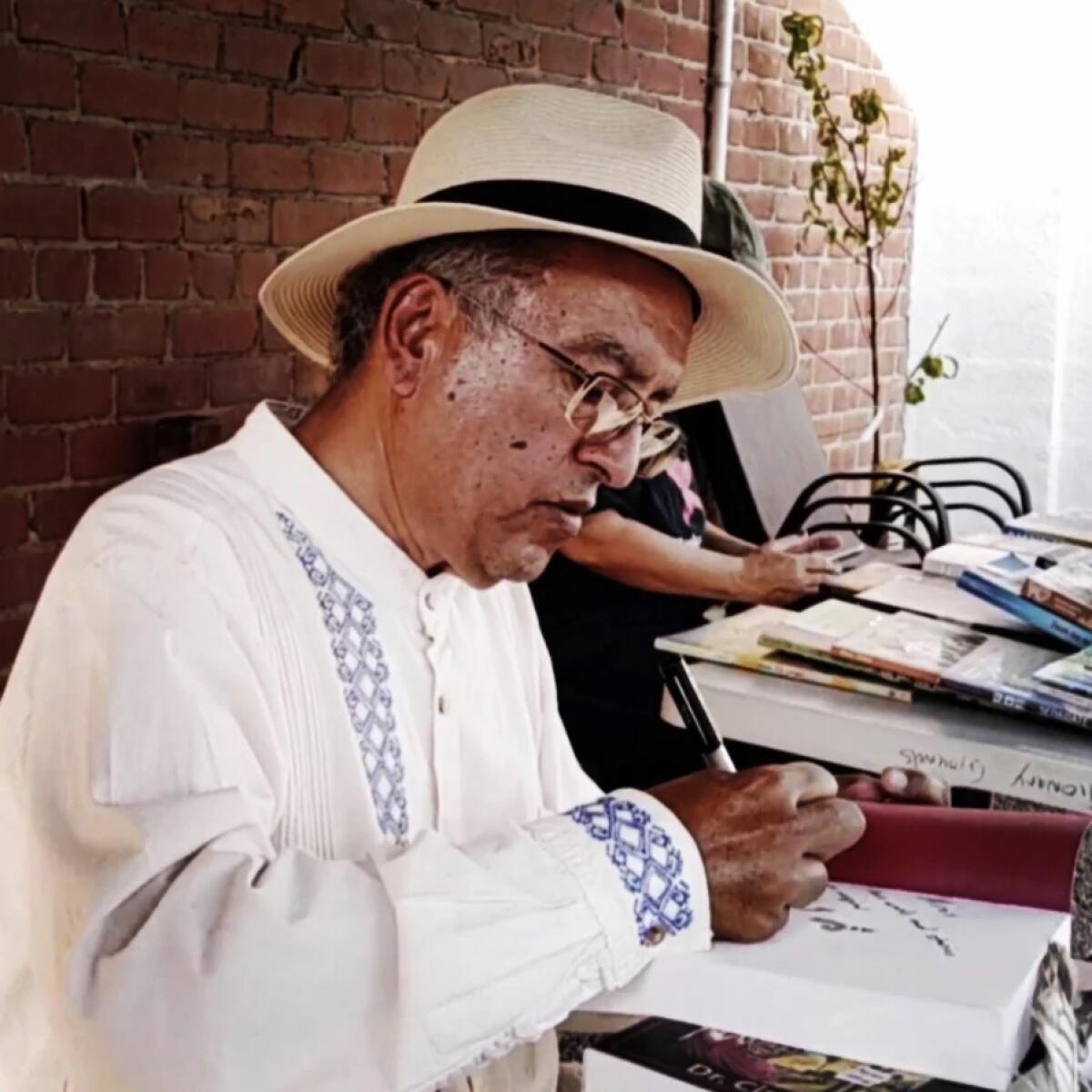
In the spring of 1979, Roberto Rodriguez was on assignment for Lowrider Magazine in East Los Angeles. The film “Boulevard Nights,” which dramatized the life of Chicano gangs in the neighborhood, had just debuted, and law enforcement officials across Southern California were arresting people for simply cruising in their barrios.
On Whittier Boulevard, where Rodriguez had gone to interview and photograph people, he saw L.A. County sheriff’s deputies beating up a man who had wandered onto the street waving a serape. Rodriguez documented the assault, until the deputies demanded he leave.
“Next thing you know,” Rodriguez wrote in his subsequent article, “I got pushed from behind and then I heard [a deputy] say, “Get against the f— car.”
Four deputies kicked, punched and beat Rodriguez with a baton before arresting him. He spent three days in the hospital, got 14 stitches for a gash between his eyebrows, then found out that charges would be filed against him for allegedly assaulting the deputies with his camera.
“The sad part is ... things like this happen every weekend — like it was nothing,” Rodriguez concluded.
Rodriguez went on to become one of the most prolific Chicano writers of his generation. He authored poems, books and a nationally syndicated column with his wife, Patrisia Gonzales, while lecturing nationwide on everything from police brutality to ethnic studies, Aztec teachings and contemporary politics.
He died Monday of heart failure in Mexico, where he had lived near Teotihuacan for the past three years while working on his next project and continuing to write his own bimonthly column. He was 69.
“Robert always kept his heart and soul with la gente,” said Felix Gutierrez, a retired USC journalism professor who first met Rodriguez when the latter was the editor-in-chief of UCLA’s Chicano newspaper in the 1970s. “He wasn’t looking for a fight, but he was always standing up for the people and issues that other people didn’t stand up for as consistently as they should’ve.”
Prosecutors eventually dropped the charges against Rodriguez, but he still sued, alleging that the deputies had violated his 1st Amendment rights and civil rights. In 1986, a jury awarded him $205,000. He used the money to start a bilingual magazine, telling LA Weekly the following year that “it would’ve been like drinking my own blood” to use the money just on himself. “And that victory represents a lot of blood,” he added.
“He would write in an accessible language,” said poet Matt Sedillo, who helped Rodriguez with an online database of Latinos killed by law enforcement nationwide since 2000. “Not to make the simple complex, but to make the complex simple. The throughline was an open relationship with time. With him, you’d be in Whittier Boulevard, then you’d be with Columbus coming to the Tainos and chopping off their hands.”
A journalist who sued four Los Angeles County sheriff’s deputies, alleging that they beat and falsely arrested him in 1979 after he photographed them beating another man, was awarded more than $200,000 in damages Tuesday by a Los Angeles Superior Court jury.
Born in Aguascalientes, Mexico, Rodriguez moved with his family to East L.A. as a child in the late 1950s. In his 2021 anthology, “Writing 50 Years (más o menos) Amongst the Gringos,” Rodriguez wrote, “Unable to speak English and being chocolate brown, I became fully aware of the vicious hate” whites and Mexican Americans alike “had against people like me from Mexico.”
He attributed his interest in journalism and Chicano issues to Los Angeles Times columnist Ruben Salazar. Rodriguez’s father watched Salazar’s on-air commentaries for KMEX-TV Channel 34, and Salazar’s killing in 1970 by a sheriff’s deputy who shot a projectile into an East L.A. bar occurred not far from the Rodriguez home. After graduating from UCLA and dabbling in short stories, Rodriguez began to contribute regularly to Lowrider Magazine, which in those days published investigations and on-the-ground dispatches about the Chicano movement as much as it did photos of beautiful cars and women.
That’s how he ended up on Whittier Boulevard that Saturday night.
Some 8 1/2 years later and a couple of miles away, Roberto Rodriguez is still at it on the Eastside.
“He wanted to walk away, but he said, ‘No, I got to take pictures,” said Gonzales. “It cut his life short.”
The incident hung over Rodriguez for the rest of his years. He published three books about it, while suffering terrible headaches and nightmares as a result of his injuries. Every year, he commemorated March 25 and Nov. 7 — the anniversaries of his beating and the dropping of the charges against him.
But Gonzales said Rodriguez’s civil lawsuit taught him to not hold hate in his heart, especially after the jury — which had only one person of color on it — found in his favor.
“That was a guiding point to him,” she said. “He believed that people wanted to do right.”
The two met in 1990, at a conference marking Salazar’s death, and married shortly after. In 1993, he invited her to co-write a regular column. “He told me, ‘We are equals. We’re going to co-create together.’”
Their “Column of the Americas” ran for about 13 years as one of the few Latino-penned syndicated columns in the country. The two covered everything from anti-immigrant politics to the War on Terror but increasingly focused on migration, both contemporary and ancient. That led Gonzales and Rodriguez to produce a 2005 documentary on the subject and transition to academia — both got their doctorates at the University of Wisconsin and ended up at the University of Arizona’s Mexican American Studies program, where they were associate professors.
“He would really engage in dialogue with people who thought very differently from us,” responding to hateful letters and appearing on conservative talk shows, Gonzales said. “He believed in humanization and always talked about how too many people dehumanize each other.”
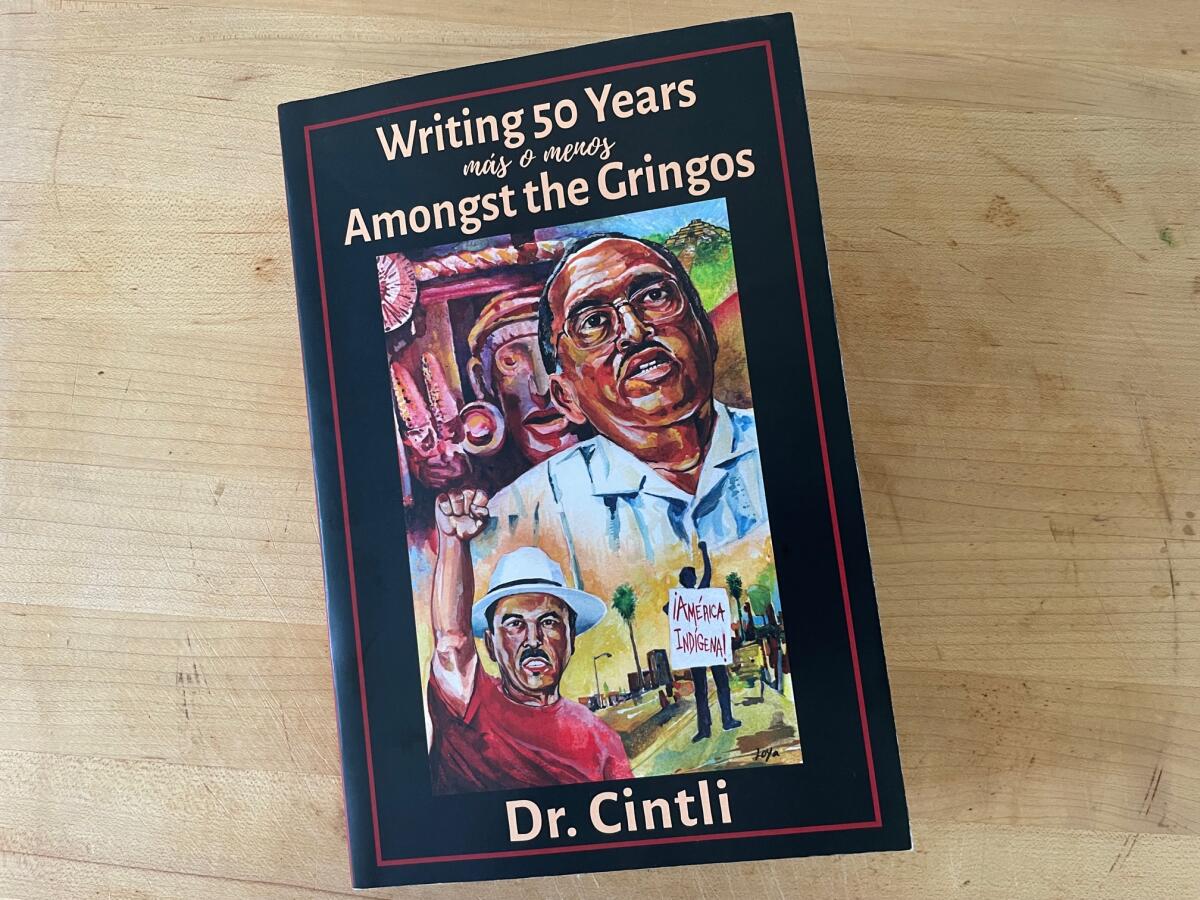
One of his passions was maize — its history, folklore, science and modern-day uses. He published an academic book about it in 2014 and even wrote a blurb for the bags used by Acapulco Tortilleria in East L.A. that called maize “our sacred sustenance.” His advocacy for the staple crop was such that he would sign some of his writings as Dr. Cintli (corn), a name bestowed on him by a Nahua elder in Sacramento.
“He wanted mexicanos to understand that even though because of colonization they were no longer connected to their tribes, they’re part of an ancient story because they eat corn,” Gonzales said. “It’s the start of your humanity.”
In addition to Gonzales, to whom he was married for 19 years, Rodriguez is survived by his brothers John, David, Alex, Dan and Joe. Services are pending.
“We were always aware that he might not live a long time,” Gonzales said, referring to the trauma of his 1979 beating. “But he lived 300 years in his lifetime. He created so much good. That’s how he found happiness.”
More to Read
Start your day right
Sign up for Essential California for the L.A. Times biggest news, features and recommendations in your inbox six days a week.
You may occasionally receive promotional content from the Los Angeles Times.
